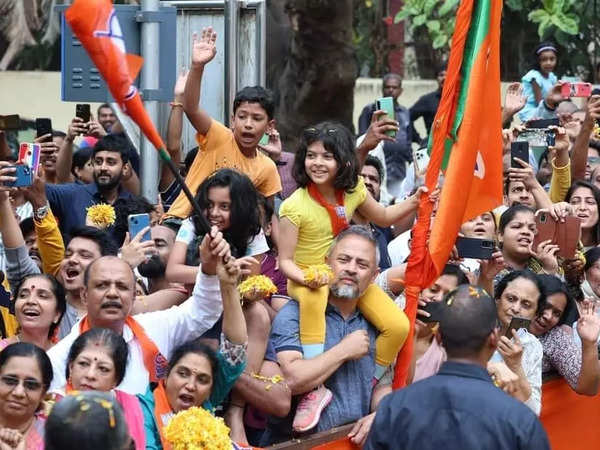Political speech between parties reached a new low during the Karnataka election campaign, with party leaders using disparaging and insulting rhetoric towards their rivals. Political commentators have observed that the use of terms like “venomous snake,” “Vishakanya,” and “Nalayak” contributed to the election’s unfavourable atmosphere.
The BJP was outraged when AICC President M. Mallikarjun Kharge referred to Prime Minister Narendra Modi as a “venomous snake” during the campaign. In retaliation, Basanagouda Patil Yatnal, the BJP candidate for Vijayapura, referred to Sonia Gandhi as a “Vishakanya” (venomous maiden). The Prime Minister was also disparaged by Kharge’s son, Priyank Kharge, who called him a “Nalayak Beta” (incompetent son).
The corruption debate also had a big impact on the election, with the BJP and the Congress trading jabs. The Prime Minister responded by pointing out that corruption reached 85% during Rajiv Gandhi’s time as Prime Minister, while the Congress attacked the BJP, branding it a “40% commission government.”
Using an audio recording as proof, the Congress charged the BJP candidate Manikanta Rathod with hatching a scheme to hurt Mallikarjun Kharge and his family during a large rally on May 6. Rathod, however, refuted the accusations and insisted that they were entirely false.
Political commentators claim that the atmosphere of the campaign and election was tarnished by the use of such impolite language without exercising caution and restraint. The leaders’ attention to mudslinging and personal jabs distracted them from dealing with the actual problems that the state and its citizens were facing.
To ensure a healthy democracy, political campaigns must be conducted with decency and respect for opponents. Such language merely fosters a toxic environment that threatens the democratic process and paints political leaders in a negative light.

